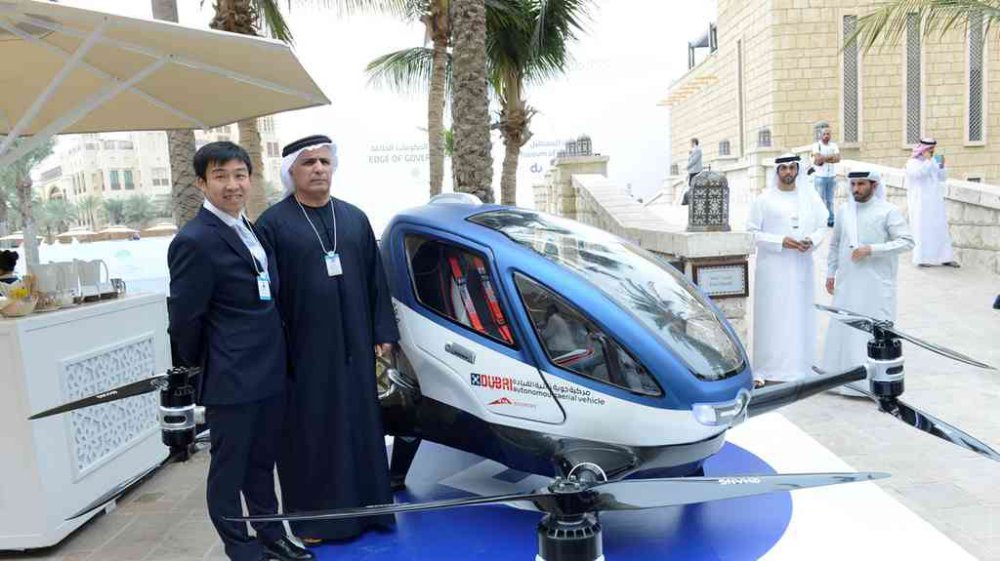Within a matter of months that dilemma could become real. Dubai’s Road and Transport Authority (RTA) has announced that it will begin testing a two-seater autonomous flying taxi that within five years could be as familiar as the current terrestrial versions.
At the same time, the RTA is to work with Dubai’s Civil Aviation Authority to develop a legal framework for pilotless aircraft that carry passengers. Once in place it will be the first of its kind in the world.
The Volocopter is unprecedented in the history of aviation, even though much of the technology is familiar. The aircraft is essentially a supersized drone, powered by 18 electric propellers and capable of around half an hour’s flying time.
What makes the Volocopter different is that it will do so with humans on board, but not at the controls. Passengers will need to do no more than enter their destination and fasten their seatbelt. The machine, watched over by its handlers on the ground, will do the rest.
The Volocopter, then, is a departure from aviation as we know it in almost every sense. It must also overcome a series of regulatory hurdles as well as win public confidence that they will emerge from the experience alive (although it does come with a parachute).
The principal issue for using a pilotless aircraft in the UAE would be one of liability, according to local lawyers with knowledge of aviation law.
While the liability of passenger airlines for international flights is governed by the 1929 Warsaw Convention, domestic flights are the responsibility of the country in which they take place. The 1944 Chicago Convention, which is enshrined in the UAE’s Civil Aviation Law, states that: “Every state has complete and exclusive sovereignty over airspace above its territory.”
The proposed Dubai law, they say, would have to establish liability, but also cover safety and security issues relating to anyone wishing to run a pilotless passenger service.
Standards of international civil aviation are agreed through the International Civil Aviation Authority (ICOA), with an elected council that currently includes the UAE, representing the region.
ICAO standards apply only to international flights but the organisation says its member governments “importantly keep these national rules and regulations aligned globally in the interests of overall system safety, security, efficiency and many other objectives”.
However, the organisation says that the growing awareness of the potential of what it describes as “remotely piloted aircraft” means it has been approached by both governments and companies who have “recognised the value of having internationally aligned approaches, and… encouraged us to get involved”.
Earlier this year the ICAO issued a request to members, seeking details of the latest concepts and proposal for what it calls Unmanned Aircraft Systems (UAS) and will have them presented at a conference in Canada later this year.
Source: The National

